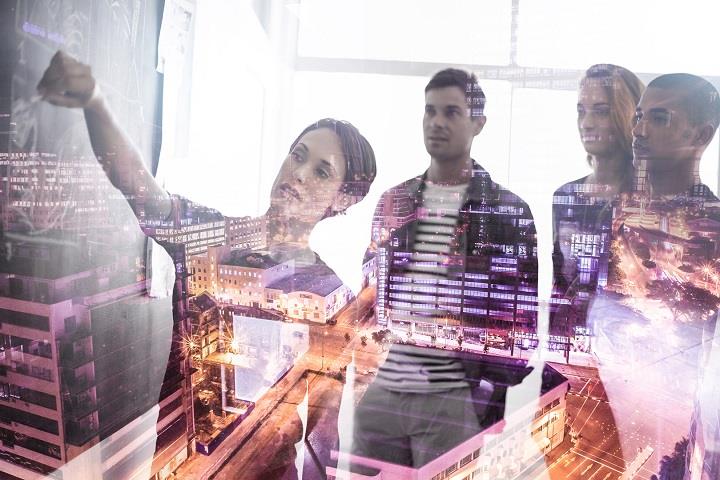
Blog.
Let’s Get Digital: How Leeds’ events have embraced the new normal
In the last few months, we’ve seen how technology can help us stay connected. Zoom, Facetime, Skype and a cacophony of apps have been used worldwide to help friends and families keep in touch to alleviate stress, deliver hope and adapt to what is frequently being branded ‘the new normal’. But it’s not just in our personal lives that we’ve been utilising these new technologies.
Whilst we eagerly await for the day we can catch up over a brew in the office or network face to face, for now working from home has meant that we’ve had to adapt to seeing our colleagues through a screen and has forced a number of conferences and events to put on the brakes. But thanks to digital advances being made in the city of Leeds, three events have been able to embrace this period of change, adapt their events and create unique, online conferences for delegates to virtually attend.
Leeds is known as ‘The Digital Capital of the North’, so it was never an option for Leeds Digital Festival to be put on the backburner in Spring. The 2020 Virtual Festival took the form of 134 online events that welcomed 15,000 attendees from over 50 countries to discuss and celebrate digital culture and innovations that are happening in Leeds with delegates from across the globe. As a result of the success of its April event, Leeds Digital Festival returned in September with a series of virtual sessions and round tables covering topics such as robotics and AI, cyber security and digital health.
The International Medieval Congress is the largest medieval festival in the world, drawing in international delegates and offering them a stage to present, share and discuss their research with other medievalists. This year saw the historic event take a modern step when its annual conference moved online for the first time, through the brand new University of Leeds app.
The app enabled delegates to virtually attend keynote speeches from over 500 speakers, including Rowena McCallum from the School of History, Anthropology, Philosophy & Politics at Queen’s University Belfast, Keagan Brewer from the Medieval & Early Modern Centre at University of Sydney and Michael Carter from the Curatorial Department at English Heritage as well as sessions and other activities across the five day conference from the comfort and safety of their own homes.
The University of Leeds app also enabled the fourth Arabic Linguistics Forum to go digital after its physical event was cancelled in the summer. Delegates and researchers from Europe, the Middle East and beyond gathered virtually to discuss all areas of Arabic linguistics including dialectology, sociolinguistics, historical linguistics and psycholinguistics and were able to discuss research from keynote speakers including Barry Heselwood from the University of Leeds, Marijn Van Putten from Leiden University in the Netherlands and Ahmad al-Jallad from Ohio State University in the United States of America.
Claire Heap, Head of Conference Leeds, commented: “Though we have really missed welcoming national and international delegates to Leeds to attend these insightful and educational events, we are thrilled that the technological capabilities of the city have allowed these events to embrace a new online platform and give delegates the opportunity to develop and network with others in their field, from across the globe.
“We are incredibly proud of the technologies being developed within the city of Leeds and we’re excited to see what further advances can be made in the future.”


